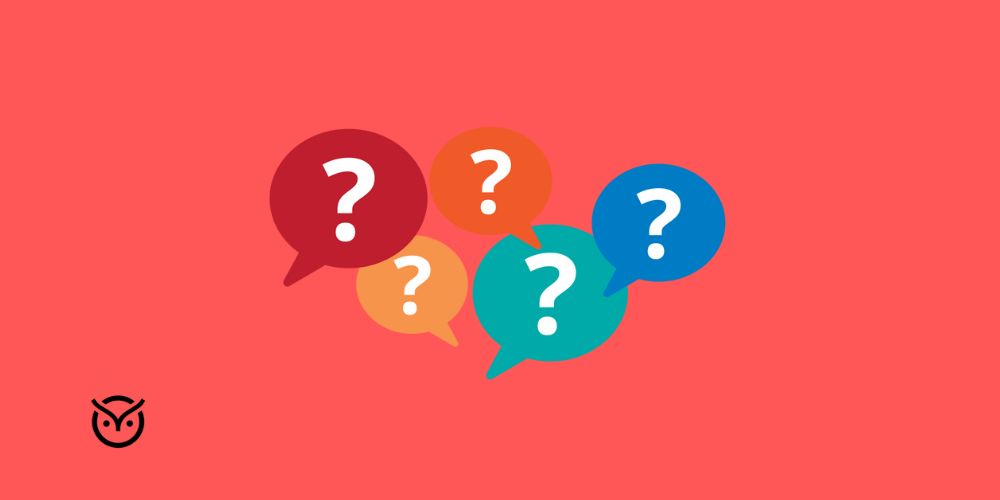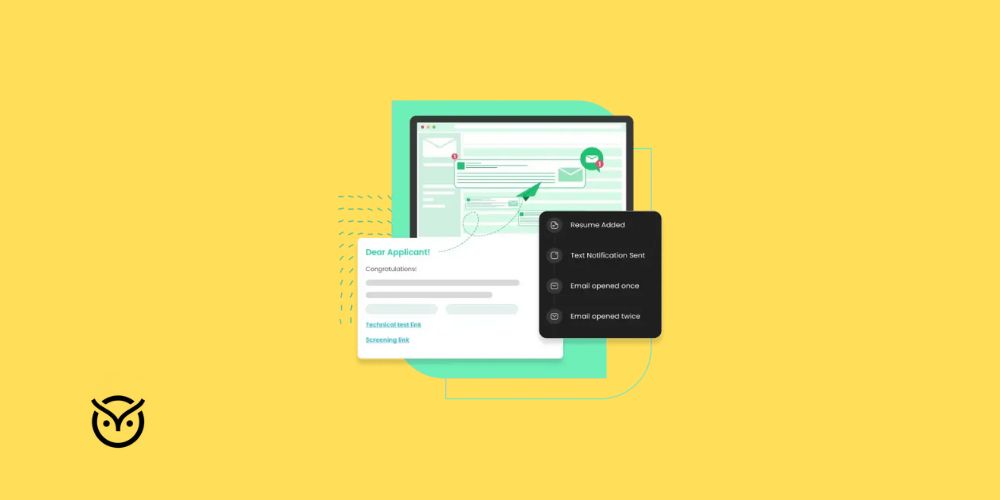
TL;DR
- Sales interviews test selling skills, quick thinking, and cultural fit
- Expect role-plays, behavioral questions, and metrics-focused talks
- Research company, product, and competitors thoroughly
- Use STAR method for structured, impactful answers
- Practice objection handling and quantify achievements
- Share real client stories and adapt to role requirements
- Ask smart, role-specific questions to show engagement
- End with a confident pitch and follow-up email
Let’s be real. Sales interviews aren’t your average Q&A sessions. They’re high-pressure moments where you have to sell yourself just as well as you’d sell a product. It’s not enough to look good on paper or have a winning smile. Whether you’re a veteran in the field or new to the game, using the right sales interview techniques can turn a forgettable goodbye into a job offer that changes everything.
This blog will walk you through what makes a sales interview unique, the 10 best sales interview techniques to master, and the best sales interview questions you’ll likely face. You’ll also find smart questions to ask in a sales interview, because interviews should be a two-way street.
What to Expect in a Sales Interview

Sales interviews aren’t your usual back-and-forth. They move fast, dive into real scenarios, and push you to show how well you can sell, stay calm, and think on your feet. Here’s what you can expect.
Role-Playing Exercises
You may be asked to “sell” something, sometimes a product, other times yourself. This helps hiring managers gauge how you handle objections and close deals.
Behavior-Based Questions
You’ll likely get asked something like, “Tell me about a time you missed a sales target. What did you do?” These questions aren’t just about the story. They’re looking at how you handle pressure, learn from mistakes, and keep pushing forward. That’s what really sets top salespeople apart.
Metrics-Driven Discussions
Be prepared to talk numbers. Sales roles are measured by results, so expect to discuss your previous quotas, pipeline conversion rates, and revenue generated.
Culture Fit & Communication
Sales isn’t a one-person show. They want to know if you play well with others, adapt to the way they work, and genuinely get what the company stands for. Your stats matter, but so does how you show up, speak up, and click with the crew.
Knowing these patterns will help you anticipate and respond strategically, especially when faced with interviewing questions for sales roles like “What’s your pitch process?” or “What motivates you to close a deal?”
Sales Interview Simulator Timeline
Scroll through the key stages of a sales interview and know what to expect before you walk in.
10 Best Sales Interview Techniques to Succeed in Your Next Interview

Want to rise above the sea of applicants? These tried-and-true sales interview techniques will help you make a strong impression.
1. Research the Company and Product Inside Out
Before walking into any sales interview, you should know the company’s products, services, target market, and competitors like the back of your hand. This shows initiative and tells the hiring manager you’ll do the same for clients.
2. Use the STAR Method for Behavioral Questions
Many interview questions for sales position roles follow the STAR format (Situation, Task, Action, Result). Learn how to structure answers this way to give clear, impactful examples of your achievements.
3. Practice Handling Objections
Great sales reps don’t crumble when challenged. Use mock interviews to prepare for tricky questions like “What would you do if a client said your price is too high?” Practicing objection handling shows you’re ready for real-world sales scenarios.
4. Quantify Your Successes
Instead of saying “I met my targets,” say “I exceeded my quarterly sales target by 35%, bringing in $120K in new revenue.” When answering sales job questions, numbers speak louder than buzzwords.
5. Prepare Smart Questions for the Interviewer
Never leave without asking thoughtful questions to ask in a sales interview, such as:
- “How do you define success in this role?”
- “What CRM or sales enablement tools does your team use?”
- “How do top performers here structure their sales process?”
6. Showcase Adaptability
Sales roles evolve fast. Be ready to talk about how you’ve adapted to tech changes, market shifts, or remote selling trends. Use recent examples to highlight your agility.
7. Share Real Client Stories
Hiring managers love hearing how you closed deals, managed objections, or turned a “maybe” into a “yes.” These stories help you shine when asked good sales interview questions like “What’s your proudest sales achievement?”
8. Practice Your Pitch
You might be asked to sell the interviewer a product or even yourself. Treat this like a live pitch. Structure it clearly, focus on benefits, and close confidently. This is where many fail, but it’s your chance to stand out.
9. Study the Role Requirements
Match your answers to the job description. If you’re interviewing for an outbound role, highlight cold-calling experience. For an account management role, talk about upselling or client retention.
10. Follow Up with a Value-Driven Thank You
Don’t just hit them with a “thanks for your time.” That’s forgettable. Instead, drop a quick note that reminds them what you bring to the table, like that one idea you mentioned or how you crushed a similar challenge before.
Technique Toolbox: Your Interview Prep Kit
Tap each tool to reveal a pro tip that helps you nail your next sales interview.
Research
STAR Method
Objection Handling
Show Metrics
Ask Questions
Adaptability
Client Wins
Pitch
Match the Role
Follow Up
Common Sales Interview Questions and Answers
Preparation is everything. Knowing how to respond to the most frequently asked sales job questions can help you stay calm, confident, and in control. Below are some of the most common sales interview questions and answers.
1. “Walk me through your sales process.”
Why it’s asked: The interviewer wants to understand how you think strategically and execute deals.
How to answer: “I begin by researching the client’s needs, then move to personalized outreach. I qualify leads using BANT, present tailored solutions, handle objections with prepared responses, and always follow up. For example, at my last job, this approach helped me increase my close rate by 27% in two quarters.”
2. “How do you handle rejection?”
Why it’s asked: Resilience is key in sales.
How to answer: “I treat rejection as feedback. I analyze what didn’t work, tweak my approach, and move forward. One time, after losing a major deal, I asked for feedback, re-pitched with a new offer, and ended up closing the deal three weeks later.”
3. “What motivates you in a sales role?”
Why it’s asked: Hiring managers want to know if you’re driven by the right factors.
How to answer: “I get a real kick out of solving problems for clients and chasing big goals. Knowing my work ties directly to revenue keeps me sharp, focused, and always one step ahead.”
4. “What are your biggest achievements in sales?”
Why it’s asked: To gauge your performance history and mindset.
How to answer: “I led the launch of a new SaaS product and hit 150% of my target in the first quarter. I built a pipeline from scratch, closed enterprise deals, and used upselling strategies to increase customer lifetime value.”
Buzzword Buster: Clean Up Your Sales Interview Answer
Drop in your interview response below. We’ll highlight vague words and suggest better alternatives.
5. “Why do you want to work in sales at our company?”
Why it’s asked: To assess your interest in the company and role.
How to answer: “Your focus on innovation in the healthcare sales space stood out. I’m excited to bring my experience in consultative selling to a team that values solution-driven outreach.”
6. “How do you prioritize leads?”
Why it’s asked: They want to see how you manage your time and focus on what actually moves the needle.
How to answer: “I score leads based on engagement, industry fit, and potential deal size. I also factor in timing, warm leads who just downloaded a case study go to the top of my list.”
7. “What are some good questions to ask in a sales rep interview?”
How to respond if you’re the candidate:
Be ready with smart questions to ask in a sales interview, like:
- “How do your top performers achieve consistent results?”
- “What’s the toughest part of hitting your sales goals right now?”
- “What does onboarding look like for new reps?”
These show you’re not just looking for any job. You’re invested in success.
8. “Sell me this pen.”
Why it’s asked: To evaluate your ability to think on your feet.
How to answer: Start by getting curious: “How often do you reach for a pen?” or “What do you care about more—how it feels or how it looks?” Use their answers to shape a pitch that actually hits home.
Simulate the Sale: Can You Close the Deal?
Conclusion
Nailing your next sales interview isn’t about rehearsing lines like a soap opera extra. It’s about walking in sharp, knowing your worth, and actually proving you can sell, starting with yourself. The right sales interview techniques help you stay ahead, and the smart questions for a sales interview show you’re not just hunting for a job. You’re here to win. Bring the energy, back it up with results, and make them wonder how they ever closed deals without you.




